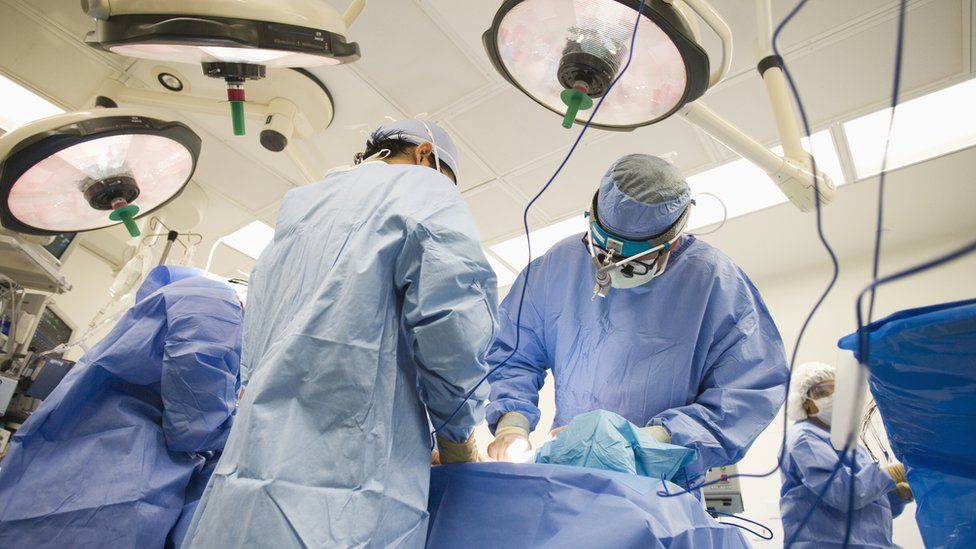ARTICLE AD BOX
 Image source, Getty Images
Image source, Getty Images
By Nick Triggle
Health correspondent
The number of people paying privately for operations and treatments in the UK has risen by more than a third since the pandemic started, figures show.
Last year 272,000 used their own money to pay for treatments, such as knee or eye surgery - up from 199,000 in 2019.
The NHS backlog has been blamed for the trend, with some of the treatments costing more than £15,000.
But there does appear to have been a shift away from private insurance driven by the cost of living crisis.
The numbers treated through that route were just below 550,000 - more than 30,000 fewer than three years ago.
Health providers are reporting patients desperate for treatment because of NHS waits are increasingly turning to the private market.
There are currently 7.3m people waiting for NHS treatment in England - up by nearly 3m since the start of the pandemic.
One in 20 have been waiting more than a year.
The numbers waiting for treatment has also risen in Scotland, Wales and Northern Ireland.
'I took out a bank loan to pay for my op'
Sommer Tebenham, 28, from Hove, took out a bank loan of £5,500 to fund a gallbladder removal because she did not want to risk a further "year in pain".
She was diagnosed with gallstones in November 2022 and was told to expect an operation around April 2023.
However, she was warned the surgery could be another six to 12 months away.
So she then paid privately to have the surgery in a clinic in Luton.
"It's the best thing I've ever done because I'm no longer in pain," she said.
She said she would be paying the loan off over the next two years.
But said she was angry because she had been paying national insurance since she was 18.
"If this was any other industry, if you pay for a service and you don't receive it, you should get a refund," she said.
The data from the Private Healthcare Information Network (PHIN) paints a complex picture of the private market.
Like the NHS, a lot of planned treatment was put on hold during the pandemic so there has been an element of catching up on the backlog.
But that has happened as the make-up of private patients has shifted towards self-funders.
They now account for a third of all private patients compared to a quarter before the pandemic.
PHIN said long waits for NHS treatment was a key factor.
"There is a whole combination of factors influencing this growth, with the long NHS waiting lists, and uncertainty around how long you'll be waiting, certainly key among them," added PHIN chief executive Dr Ian Gargan.
"We know that everyone loves and respects the NHS and its hard-working staff, but people are increasingly investigating healthcare alternatives."
Knee and hip replacements can cost in excess of £15,000 to be done privately.
Patient watchdog Healthwatch England has said the trend towards people paying privately for treatment risks creating a "two-tier" system.
But the Department of Health and Social Care in England said tackling the backlog was one of its key priorities.
A spokesman said good progress was being made, with long waits of more than 18 months close to being eliminated.

 2 years ago
40
2 years ago
40








 English (US) ·
English (US) ·